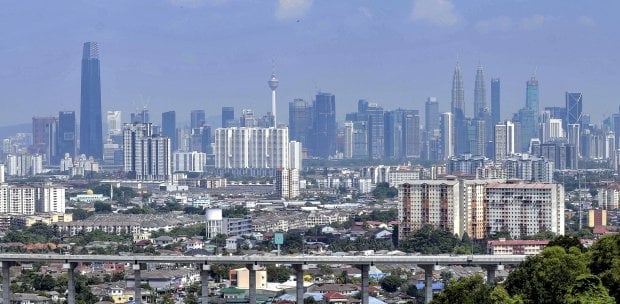In the labyrinthine corridors of foreign policy, a perennial debate rages: is morality merely a fleeting shadow in the realm of national interests, or does it wield a substantive influence on the conduct of nations?
This dichotomy, often portrayed as a clash between realpolitik and idealism, encapsulates the complex interplay between pragmatic concerns and ethical imperatives in the arena of international relations.
At first glance, the landscape of foreign policy appears dominated by the pursuit of national interests—a cacophony of strategic calculations, economic considerations, and geopolitical maneuvering. From the grand chessboard of great power politics to the intricate web of diplomatic negotiations, nations navigate a treacherous terrain where self-preservation reigns supreme.
In this realpolitik paradigm, the moral compass often takes a backseat to the imperatives of power and security. Indeed, critics argue that foreign policy decisions are primarily driven by a cold calculus of national interest, where ethical considerations are merely window dressing for Machiavellian machinations.
However, such a reductionist view fails to capture the nuanced interplay between morality and foreign policy. Beneath the veneer of realpolitik lies a deeper current of moral consciousness that shapes the behavior of nations on the world stage.
At its core, foreign policy is not merely a game of power politics but a reflection of a nation's values, principles, and ideals. From the lofty aspirations of human rights to the imperative of global justice, moral imperatives permeate the fabric of international relations, influencing the decisions of policymakers and diplomats alike.
Moreover, history bears witness to moments when moral considerations have trumped narrow national interests in shaping foreign policy outcomes. The abolition of slavery, the fight against apartheid, and the struggle for human rights have all served as rallying cries that transcended geopolitical divides and galvanised international action. In these instances, moral imperatives served as guiding beacons, inspiring nations to rise above self-interest and champion universal values on the global stage.
Indeed, the very notion of national interests is not devoid of moral content but is rather imbued with ethical considerations. At its essence, the pursuit of national interests encompasses not only the quest for power and security but also the promotion of values and principles that define a nation's identity.
Whether it be democracy, freedom, or the rule of law, these values constitute the moral foundation upon which foreign policy objectives are built. Thus, the dichotomy between morality and national interests is not as stark as it may initially appear, but rather reflects the complex interplay between ethical imperatives and pragmatic considerations in the conduct of foreign affairs.
Globalised World
Furthermore, the globalised nature of the modern world has rendered the distinction between domestic and foreign policy increasingly porous. In an interconnected world where borders are permeable and crises are transnational in nature, moral considerations often intersect with national interests in unexpected ways.
Issues such as climate change, pandemics, and human trafficking defy traditional notions of sovereignty and demand collective action grounded in shared values and principles. In these instances, the pursuit of national interests becomes indistinguishable from the pursuit of global goods, blurring the lines between selfinterest and altruism in the realm of foreign policy.
However, the road to a morally-driven foreign policy is fraught with challenges and contradictions. The pursuit of national interests often necessitates difficult trade-offs and compromises that may run counter to ethical principles. The exigencies of power politics, the pressures of geopolitics, and the imperatives of security can all conspire to undermine moral imperatives and lead nations down a path of expediency and pragmatism.
Moreover, the absence of a universal moral consensus complicates efforts to translate ethical principles into actionable foreign policy initiatives, leaving room for interpretation and manipulation by vested interests.
Economic consequences
In the arena of international relations, the interplay between law and politics shapes not only diplomatic maneuvers but also economic dynamics on the global stage.
The question of whether international law primarily embodies legal principles or serves as a tool for political ends carries significant implications for economic actors and the broader economic landscape.
From a legalist perspective, international law provides a stable framework that fosters economic cooperation and facilitates trade and investment among nations.
Treaties, trade agreements, and international institutions such as the World Trade Organisation (WTO) establish rules and regulations that govern commercial interactions, providing a level playing field for businesses and promoting economic stability.
The adherence to legal norms and the resolution of disputes through legal channels enhance investor confidence and mitigate the risks associated with crossborder transactions.
Moreover, international law plays a crucial role in shaping economic policy and governance at the national level. States are bound by legal obligations stemming from international agreements, which in turn influence domestic regulations and policies related to trade, investment, and intellectual property rights.
The harmonisation of legal standards across borders reduces transaction costs for businesses and fosters a conducive environment for economic growth and development.
However, critics of the legalist perspective argue that international law is often subordinated to political considerations, particularly in the realm of economic relations.
Powerful states may leverage their influence to shape the formulation and enforcement of international economic law to advance their strategic interests and economic agendas.
The selective application of legal norms, coupled with the absence of effective enforcement mechanisms, undermines the efficacy of international law as a truly legal framework for economic governance.
Furthermore, the intersection of law and politics in international economic relations can give rise to tensions and conflicts that have far-reaching economic consequences. Trade disputes, investment disputes, and sanctions regimes are often characterised by legal wrangling intertwined with political maneuvering, leading to uncertainties and disruptions in global markets.
The politicisation of economic issues can impede cooperation and hinder efforts to address pressing economic challenges such as poverty, inequality, and climate change.
Moreover, the proliferation of bilateral and regional trade agreements, often driven by political considerations rather than legal principles, can fragment the global trading system and complicate efforts to achieve multilateral economic cooperation.
The rise of protectionism and nationalism in some quarters further underscores the challenges facing international economic law and the broader liberal economic order.
In this context, the dichotomy between law and politics in international relations complicates the economic landscape, shaping the behavior of economic actors and influencing the trajectory of global economic trends.
While international law provides a framework for economic cooperation and governance, its effectiveness is contingent upon political will and the willingness of states to uphold their legal obligations.
As economic globalisation deepens and economic interdependence grows, the nexus between law, politics, and economics becomes ever more pronounced, highlighting the need for a nuanced understanding of the complex dynamics at play in the realm of international economic relations.
The case for Kancil Diplomacy
There is no reprieve for Malaysia; sooner or later, we will have to formulate our big power policy. Undoubtedly, it will be driven by domestic political necessity, especially economic gains. We cannot afford to be a hermit nation.
Our trade to GDP ratio, exceeds 100 per cent and in fact, is almost double that of the global average.
Against the backdrop of an unfolding global landscape, change is inevitable, unrelenting, and overarching. Like the smart proverbial mousedeer (Kancil), an open economy like Malaysia must learn to dance along with the Goliaths of the international trading system while making the required structural transformation in government and economy.
In this context, the proverbial Malay sang kancil, or mousedeer, is known for its agility and wit. Strategy and timing are of essence, and as we dance along the behemoths, we must be careful not to get trampled by them. Instead, we ought to play according to the accepted rules and reap the maximum number of benefits.
National Interest
In the national interest, while we actively participate in globalisation, we must ensure that our economic sovereignty is not compromised. Being a small open economy, Malaysia is highly interconnected with the global economy through its active participation in global value chains (GVCs).
However, this would also mean that its economy is vulnerable and highly susceptible to external shocks and disruptions, such as volatile movements or fluctuations in global commodity prices, or risks arising from a trade war.
Recall that in 1848, Lord Palmerston famously made his speech in the House of Commons where he declared that "We have no eternal allies,and we have no perpetual enemies. Our interests are eternal and perpetual, and those interests it is our duty to follow."
More than a century later, Dr Henry Kissinger echoed the same when he stressed that "America has no permanent friends or enemies, only interests."
Meanwhile, down under, a white paper aptly titled "In the national interest: Australia's foreign and trade policy" was definitely instrumental in positioning the nation into a high income economy with a very high quality of life as measured by the Human Development Index (HDI).
In conclusion, the relationship between morality and foreign policy is neither dichotomous nor deterministic but rather dynamic and contingent upon a myriad of factors.
While national interests often take precedence in the conduct of foreign affairs, moral considerations remain a potent force that shapes the behaviour of nations on the world stage in an increasingly interconnected and interdependent world.
*The writer is a senior consultant at Global Asia Consulting and has a background as a senior researcher at the Malaysian Institute of Economic Research. The viewpoints articulated are solely those of the author.





